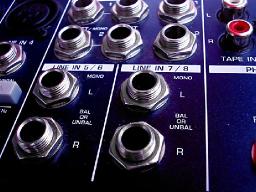

@rg
Improve Your Recordings and Mixes, on the Cheap

Some of the easiest ways to improve your recordings are also the cheapest. In fact, the most effective techniques require no money at all.
Here’s a collection of tips you might find helpful the next time a pricey piece of gear stands between you and great recordings.
HELP FROM OTHERS
Have a friend perform: Home recording, especially for singer/songwriters and electronic musicians, often involves a single musician writing and recording all the music. But artists in this situation can find themselves too close to the song, at mix time, to make decisions critically.
Working with other musicians might initially complicate recording and mixing. However, creating a great mix depends, in part, on your ability to remove unnecessary details, and most of us are more comfortable objectively critiquing someone else’s work. So asking a friend (or some professionals ) to perform a track or two will ultimately make mixing easier, and more effective.
Get more ears on the mix: With any task requiring attention to detail, it’s easy to lose the forest for the trees. And so it goes with mixing. A second or third opinion can draw your attention back to details you’ve glossed over.
And outside opinions needn’t come from other musicians and engineers. (Although the homerecording.com MP3 mixing clinic is a great source for free advice.) Often, regular listeners give the best feedback because they don’t think in technical terms about the production, and instead form their thoughts on how the song makes them feel. And some of the best mix feedback I’ve gotten has come from children, who are unconditioned by musical convention.
Listen on multiple systems: Hearing a mix through different speakers is a little like getting a second opinion. And professional mixing engineers rely on this technique. Chris Lord Alge, for example, keeps a portable radio near his console for checking mixes :
Avoid dogma: Our hobby (or profession, if you’re lucky) is plagued with religious arguments, like “tube gear sounds better,” and “analog sounds warmer than digital.” Regardless of each argument’s merit, these dogmatic issues over-complicate the recording process, and distract us from the importance of technique – which, of course, costs nothing!
Cut. Ruthlessly: As musicians, our egos push us to put everything we’ve got into every part we record. But virtuoso performances and great recordings don’t necessarily go together. The whole, as they say, is often greater than the sum of the parts.
In most song arrangements, over-instrumentation usually just leads to clutter. And along with being more difficult to mix, clutter rarely sounds good.
Make every part do work: Ensure that every part competing for the listener’s attention is supposed to compete for the listener’s attention.
PRACTICE
Practice your performance before hitting record: The benefits of practice should be obvious to all musicians, but home recording fosters a “write as you record” approach to song creation.
Practice takes time. But it needn’t hamper the creative process; and in most cases it will ultimately save time. Though the tracks may take longer to record, it’s far easier – and quicker – to mix a set of well-performed, polished performances.
Not only do the performances themselves benefit from practice, but the final mix will sound more professional.
Use reference CDs: No single technique will do more to improve the quality of your mixes. Working with a reference mix is, in some ways, like getting a free lesson on mixing from a professional engineer.
Practice mixing when you’re not in the studio: Every mixing engineer should spend time listening critically to professional mixes. Set aside some time every day, say 10 minutes, to immerse yourself in a mix someone else has done. Consider the panning, which instruments take your focus, and how the focus changes as the song evolves. Try to determine the effects in use, and why they were chosen. In modern pop and rock mixes, the interplay between the lead vocal and the snare drum is particularly important, as is the bass guitar/kick drum relationship, so spend some time analyzing these parts in detail.

Nice post!!